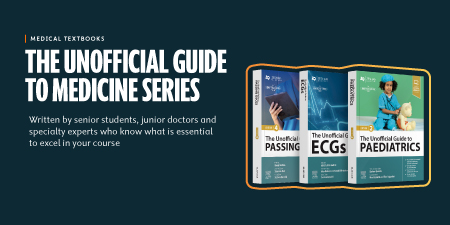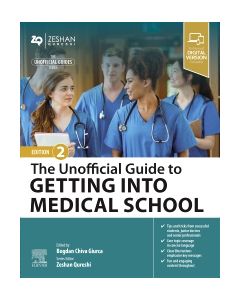Burnout in UK Medical Schools – The Extent of the Problem
Featured Titles
My social media streams have recently been increasingly inundated with articles, speeches and documentaries regarding the issue of ‘burnout.’ Despite being increasingly well-informed on the prevalence and extent of the issue, my close peers and I have found it hard to clearly understand the concept of a ‘burnt-out’ state; and if we cannot wholly comprehend what it is, how can we expect to recognise it in ourselves? In this short article, I hope to clarify some aspects of the issue, its debilitating sequelae and how to recognise and cope with the increasingly-prevalent problem of ‘burnout.’
“54.8% of those surveyed reported ‘high levels of emotional exhaustion’ and 34% reported ‘high levels of depersonalisation.’”
Defined as a concept with three key dimensions, ‘physical and psychological exhaustion,’ ‘cynicism and disengagement’ and ‘depersonalisation,’ a quantitative statistical study by Cecile J et al. in 2014 revealed disturbing statistics regarding the proportion of students suffering from the core symptoms of burnout at Manchester and St. Andrew’s medical schools. They concluded that 54.8% of those surveyed reported ‘high levels of emotional exhaustion’ and 34% reported ‘high levels of depersonalisation.’ Why then, do so few of my peers identify as being truly ‘burnt-out?’ Rather than it being a case of a media-driven inflation of statistics, I believe it is a wider, systemic problem of an inability to recognise the signs and symptoms of burnout, stemming from a lack of informed awareness regarding the issue.
Why is the issue particularly prevalent amongst medical students?
‘Students are struggling because there’s no incentive to take care of themselves’ - Rachel Stones, 3rd Year Medical Student, University of Chicago
British medical schools innately cultivate an environment of extraordinary pressure and expectations. Despite the camaraderie and firm friendships that are borne from shared experiences, the unspoken fact remains that we will all be competing for the same foundation placements at the end of tertiary education. The need to succeed can often distract from the underlying festering signs and symptoms of burnout that deflect one’s attention from recognising the problem. These thoughts are echoed in a 2016 paper by Kim Krisberg, “it [burnout] is a national systemic issue with the way we do training.”
Recognising Burnout in Yourself
There is no single elixir for fixing the ‘epidemic’ of burnout.
Being able to recognise the signs of burnout earlier and more effectively carries significant importance as it can expedite the road to seeking help and recovery.
Signs of physical and emotional exhaustion are often manifested in symptoms such as insomnia, anxiety and impaired concentration, alongside physical sequelae of these such as palpitations, dizziness, headaches and fainting. The other major component of burnout – cynicism and disengagement – will often manifest in symptoms such as pessimism, isolation, apathy, loss of enjoyment and irritability.
Coping with Burnout
Burnout can affect anyone, although studies have shown a significant genetic predisposition to developing symptoms. A Swedish twin cohort study in 2012 suggested that genetic factors contribute up to 33% of the risk of developing burnout, with the remainder being mostly attributable to environmental stressors. Therefore, whilst genetics may be an underlying risk factor, the catalyst for developing burnout is more likely to be an environmental stressor.
Organisations such as the Australian Medical Student Association advocate making time for the simple self-care necessities in life
There is no single elixir for ‘fixing’ the ‘epidemic’ of burnout. Steps towards decreasing the prevalence of the problem will involve a joint, concerted effort between medical schools and individual students. On an individual basis, students could learn how to develop healthy and effective outlets for relieving stress and taking time away from studying. These can take the form of spending time with friends and family, playing sports or music or even picking up a new hobby. Such outlets have been revealed to be of considerable importance in several studies, such as by Fares et al. (2016) and Montero-Marin et al. (2014.)
Organisations such as the Australian Medical Student Association advocate making time for the simple self-care necessities in life. These include getting enough sleep, eating healthily, keeping on top of your personal hygiene and allowing time for creative pursuits. Some medical schools, such as my own, run Mental Health Awareness weeks, where sessions are run on both educating students on how best to stay mindful of their mental health, alongside running de-stressing activities such as ‘quiet time’ in designated rooms to relax and small-group chats over tea and coffee. Engaging with these sessions could be very useful to students. Turning to recreational, ‘reality-distorting’ substances as a distraction should be discouraged owing to the likely eventual vicious downwards spiral of tolerance and dependence. At an institutional level, more must be done to educate students on positive self-care strategies and to ensure that students are adequately supported when faced with significant environmental stressors.
Burnout is a problem that has been rising in prevalence for quite some time, and if significant initiatives to tackle the problem are not implemented soon, it will continue to have worsening consequences on both our current and future generation of medical students and healthcare professionals.
Mental Health Support Sites and Phone Numbers
- Samaritans UK: 116 123 - "To talk about anything that is upsetting you"
- SANEline UK: 0300 304 7000 - "If you’re experiencing a mental health problem or supporting someone else"
- The Mix: 0808 808 4994 - "If you’re under 25"
Many universities also offer Nightline services – a listening service where you can talk through any issues that are concerning you. Find your university’s number on this website: https://www.nightline.ac.uk/want-to-talk/.
Further Reading and Watching
- Blom V, Bergstrom G, Hallsten L, Bodin L & Svedberg P. Genetic susceptibility to burnout in a Swedish twin cohort. European Journal of Epidemiology. 2012 Mar; 27(3): 225-231
- Cecile J, McHale C, Hart J & Laidlaw A. Behaviour and burnout in medical students. Medical Education Online. 2014 Aug 25; 19:25209
- Fares J, Tabosh HA, Saadeddin Z, Mouhayyar CE & Aridi H. Stress, Burnout and Coping Strategies in Preclinical Medical Students. North American Journal of Medical Sciences. 2016 Feb; 8(2): 75-81
- Montero-Marin, J., Prado-Abril, J., Piva Demarzo, M. M., Gascon, S., & García-Campayo, J. (2014). Coping with stress and types of burnout: Explanatory power of different coping strategies. PLoS ONE, 9(2). Article ID e89090.
- Z. Qureshi’s TEDx Auckland Talk on Mental Health in Junior Doctors. Link to Video: https://www.youtube.com/watch?v=uctoTk64GVM




